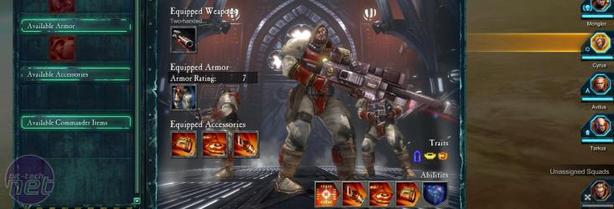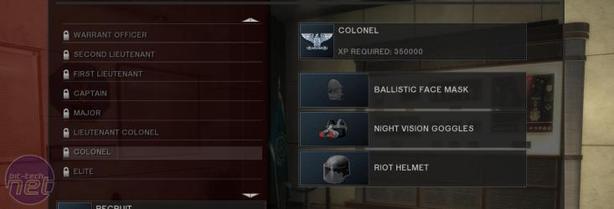
RPG Everywhere: Level Up!
One problem with the move from scoring to levelling is that levelling comes far less naturally to games. Think of any traditional game - poker, football, hand-egg - they all have a scoring system. None are games which track 'levelling up', in part because, since they're not computerised, there's no need to track your skill level. The real world will do that for you - if you belt a football at a net from 90 yards, it might go in if you're David Beckham, it probably won't if you're me, but then I've put a lot more time into Mass Effect 2 than Becks has and if he ever came across my squad of space goons, we'd cut him down to pieces in no time.For a game to allow levelling up, it has to track how good you are at things, and to get better, you need to work. Welcome then, to the grind. Here's what Torchlight's Erich had to say about grinding:
“For me, the goal of an action RPG is not to avoid grinding, but rather to make the grind enjoyable. I value tactile gameplay, [where it] feels good every time you hit a monster or cast a spell, and where it feels even better if a chunk of loot pops out. The simple rewards of the grind become the foundation for a layered system of greater rewards, like character customization, new areas to explore.”
Turning simple, repetitive interactions from being work into a game and making that game enjoyable sounds like the kind of thing that Mary Poppins would suggest to a typing pool, but it's powerful juju nonetheless. Many games have cracked this, from Torchlight to World of Warcraft and the Lineage series. Some would say that such games are mindless, turning players into sallow zombies, but tap into the world of these games and it’s clear that the people who devote such time to them are switched on, driven and ambitious.
We can see why levelling is such an attractive mechanic for developers to put into a game, as it provides a way to tell a story and create a continuous experience, and it's more involving and sophisticated than a score.
The problem, however, is that while the game is tracking your skill level in an official way - e.g. your Paladin has level five heavy weapons skill - as it's still a game, your skills are also building up in the real world. By the time you've bumped your Paladin to level 10, you're going to be better at actually playing the game.
This problem is particularly tricky in competitive shooters such as Modern Warfare 2 and Battlefield 2: Bad Company, though it has its roots way back in games like Planetside.
If you buy Modern Warfare 2 or even Bad Company 2 right now, your first few evenings in game can be a brutal and morale sapping experience. You don’t know the tricks, you navigate the levels with all the sense of direction of a Polar Bear in the Maldives and on top of that, the more experienced, higher level players have been rewarded, by the game, with better guns, better armour and sneakier special moves. An old defender such as Sol Campbell doesn't get any explicit bonuses if he was playing against a young striker such as Wayne Rooney - it's up to him to make his experience pay.
To an extent the promise of getting those better weapons and visiting your fury upon subsequent new players acts as a powerful draw, but in a fundamental sense the experience of a fair and enjoyable fight is compromised. It’s here that older games like Quake differ explicitly from more conventional shooters like MW2; in Quake all players are equal save for their personal skill, but in Modern Warfare better players will always compliment ability with equipment.

MSI MPG Velox 100R Chassis Review
October 14 2021 | 15:04











Want to comment? Please log in.